|
|
|
|
|
> > Students of Wakayama University Visited Thailand on the 2nd WTP Cultural Study Tour
|
| |
| Students of Wakayama University Visited Thailand on the 2nd WTP Cultural Study Tour |
| |
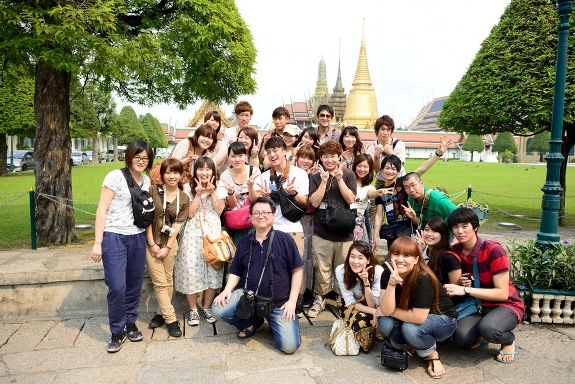
| From February 15 to March 2, 2013, in cooperation with Tourism Authority of Thailand (TAT) stationed in Osaka, EDF organised a 3-week study tour for 20 students doing Year 1 in the faculties of Tourism Management, Economics, Engineering, and Education at Wakayama University, Japan, to experience in Thai culture practised by peoples from different parts of the world to live in Thailand.
|
| |
To get to know more of Thailand and Thai people, Wakayama University students have a good opportunity to travel to tourist attractions in Bangkok. For example, Grand Palace or Temple of the Emerald Buddha, Wat Phra Chettuphon Wimon Mangkhlaram Ratchaworamahawihan (Wat Pho) or also known among the tourists as “Temple of the Reclining Buddha” and Wat Arun Rajwararam or "Temple of the Dawn" in Bangkok. Besides, the Japanese students went to Yingcharoen Market to volunteer themselves in flea market whey they sold Japanese small goods and accessories they brought from Japan at low prices. The donated the entire sale amount to EDF for charitable purposes for the underprivileged students in remote area. Their flea market captured huge attention from the Thai customers so successfully everything was sold out within only half and hour.

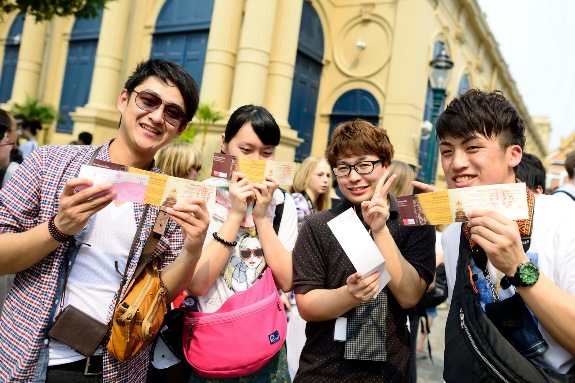
Besides cultural attractions, the students also went to visit Denso (Thailand) Company Limited, Theparak Road, Samut Prakan Province, to learn about work operation of an overseas international corporation and Corporate Social Responsibilities (CSR) initiatives that plays a significant role in automobile industry in Thailand. After that, Wakayama University students went on to join a talk-and-learn program about cultural exchange between the Thai and Japanese university students to grasp the idea of university life at Thammasat University, Rangsit Campus. At the meeting, Japanese Division Head as well as students majoring in Japanese, Faculty of Arts, gave a warm welcome to Wakayama University students as well as seated together in a discussion over similarity or differences in the university lives between Thailand and Japan. This is also considered good building of international relationship between the two countries.
After study trips in Bangkok, the Wakayama University students went to Kasetsart University Laboratory School, Si Racha Campus in Chon Buri Province to build up relationship between the Thai and Japanese youths. The program lasted two days one night yet gave all the Japanese students a good and impressive moment living with the host family as well as enjoying cultural exchange activities at the school.
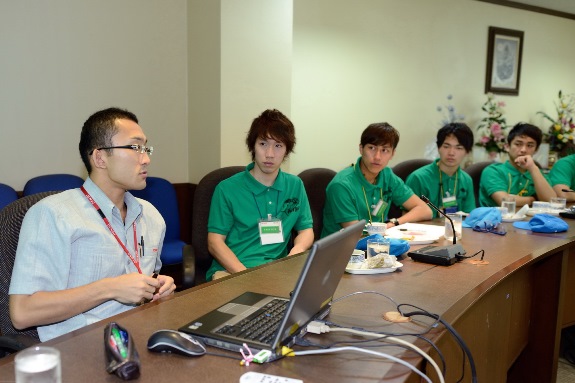
After Bangkok and Chon Buri, the university students went on upcountry to Nakhon Ratchasima Province where they had a great opportunity to get to learn about the day living or lifestyle of the northeastern (aka ‘Isan’) local people and local curriculum or educational administration of a school titled “Ban Praeng School” in Dan Khun Thot District, Nakhon Ratchasima Province. Activities included cultural exchange programs such as cooking Thai and Japanese meals, Thai-style circle dancing, playing sports like takraw and football, etc. Staying in home-stay style the Japanese students were warmly welcomed by not only students and teachers of the school but also hundreds of local people from the village of Ban Praeng village who also gave them kind hospitality along the five-day-and-four-night stay.
After the trip in Nakhon Ratchasima Province, Wakayama University students travelled to Chiang Rai Province to experience themselves in cultural exchange program at Ban Phya Phrai School and Samakki Phattana School. The Japanese students had a great time teaching the little students how to make Japanese tea traditionally, also how to make a ‘Jumping Frog’ from a reused milk container, and how to wear Japanese costume. From Thai side, the tribal students also exchanged with the Japanese students their traditional plays and performance like tea-farming dance, Mong-tribe musical dance show, Cha-khu Circle Dance of Lahu-tribe, Lukkhang (top spinning), Luk Chuang (pob play) of Mong-tribe.
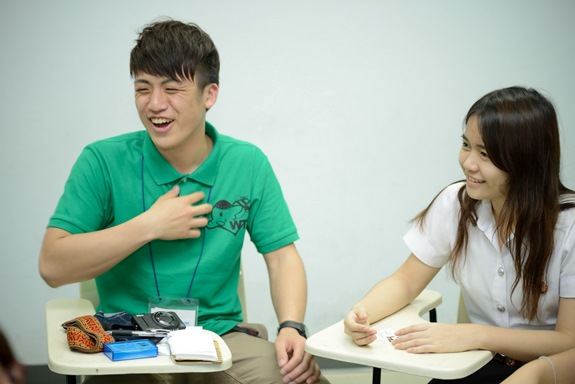
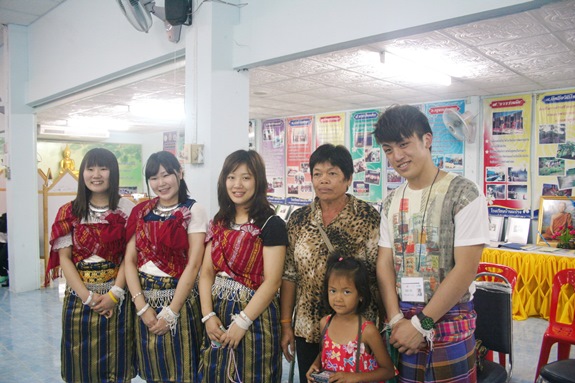
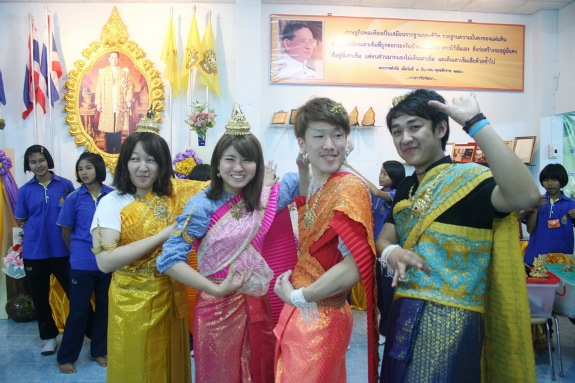
After the study trips in Chiang Rai, the Japanese students spent the last several days on travelling to visit the town of Mae Sai and crossed over the border between Thailand and Myanmar to the town Tachileik in Myanmar. On the next day, they went on to Golden Triangle (Southeast Asia) where the borders of three countries, Myanmar, Laos, and Thailand, meet, then Wat Rong Khun after. The last day before going back to Japan, the students went to Pang Chang Mae Taeng (Elephant Zoo) in Mae Taeng District, Chiang Mai where they were stunned by the beautiful creature’s abilities.
It was clearly seen that the study tour not only gave the Japanese students an opportunity to visit nearly all the parts of Thailand, but also let them learn and understand Thailand and the Thais much more. They learned much of the Thai culture when they stayed in the village, learned how the country Thai people lived their lives, joined volunteering activities with the Thai schools which instilled the mindsets of volunteerism in themselves. All in all they were clearly impressed by Thai people welcoming and hospitality, along with good memory and great time participating in many activities so much that they would like to revisit Thailand in the future.
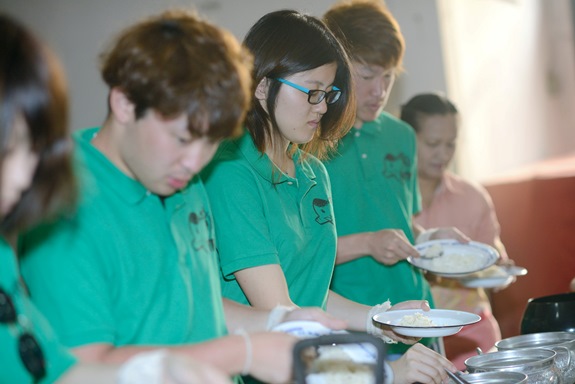
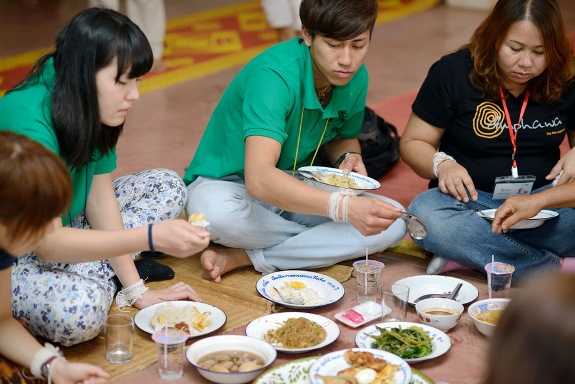
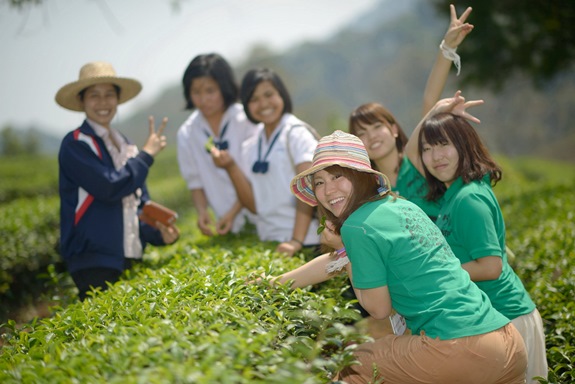
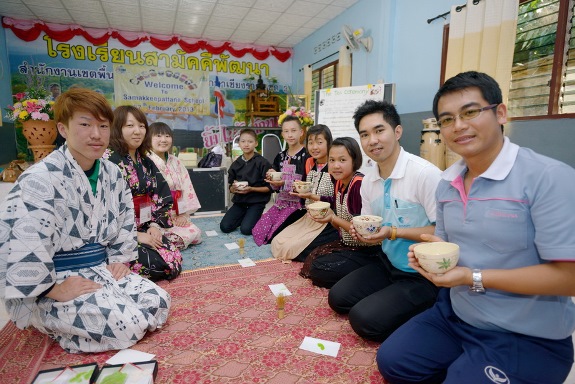
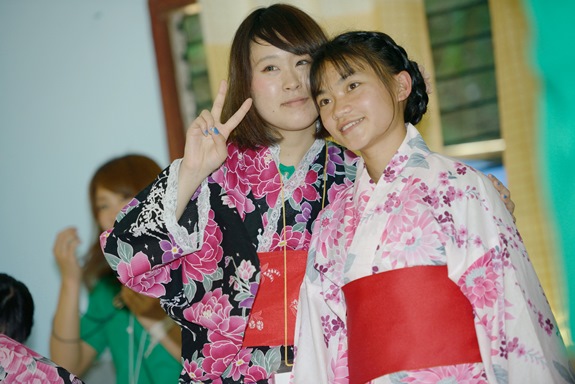
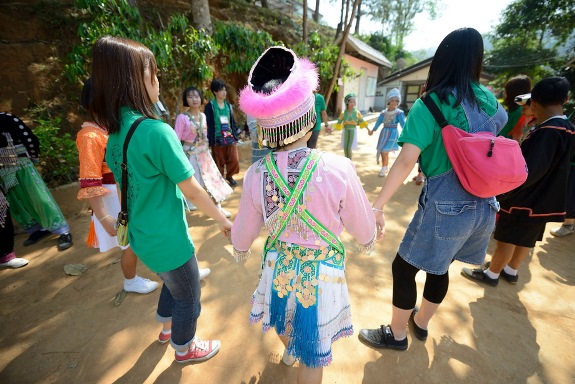
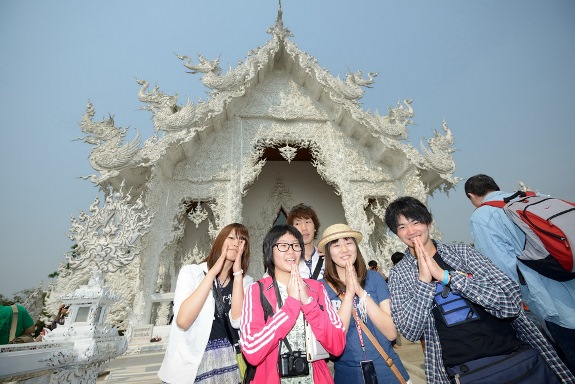
|
|
 |
|
| 2013-03-14 | Latest News & Activities | เปิดอ่าน 5493 |
|
|
|
|
|
|
|
|

